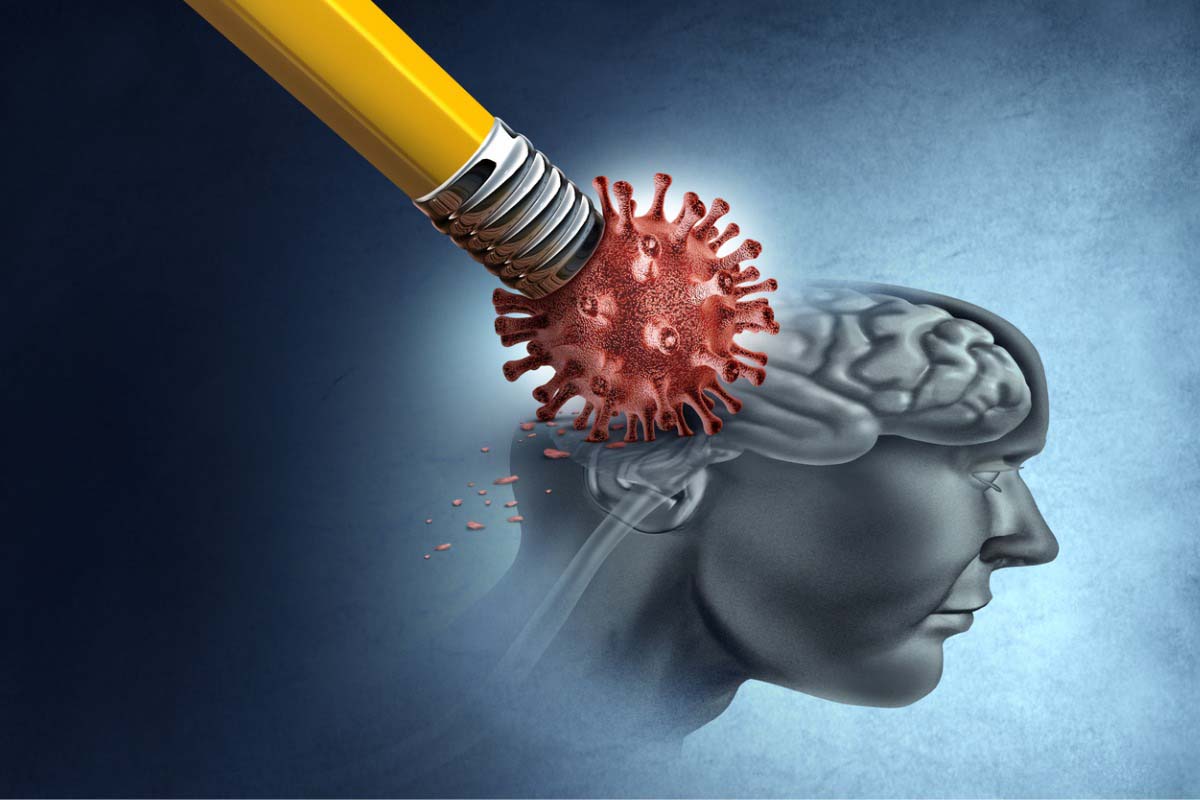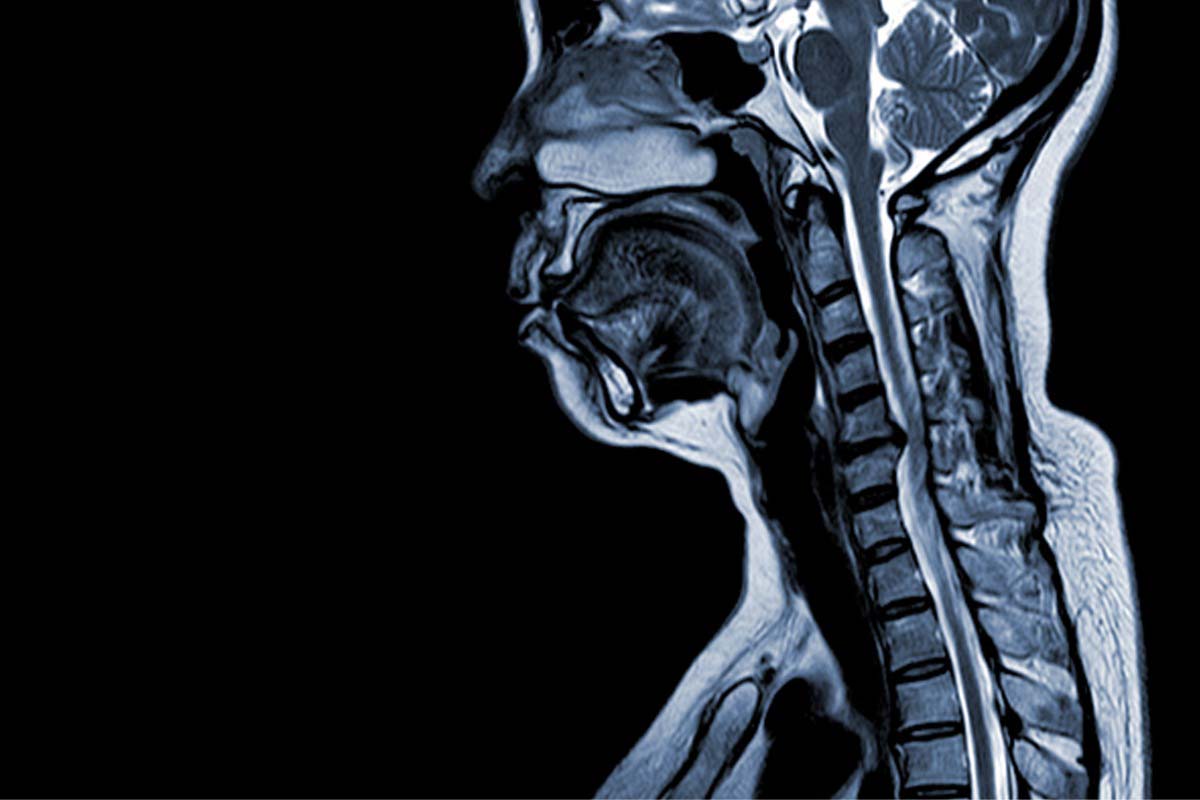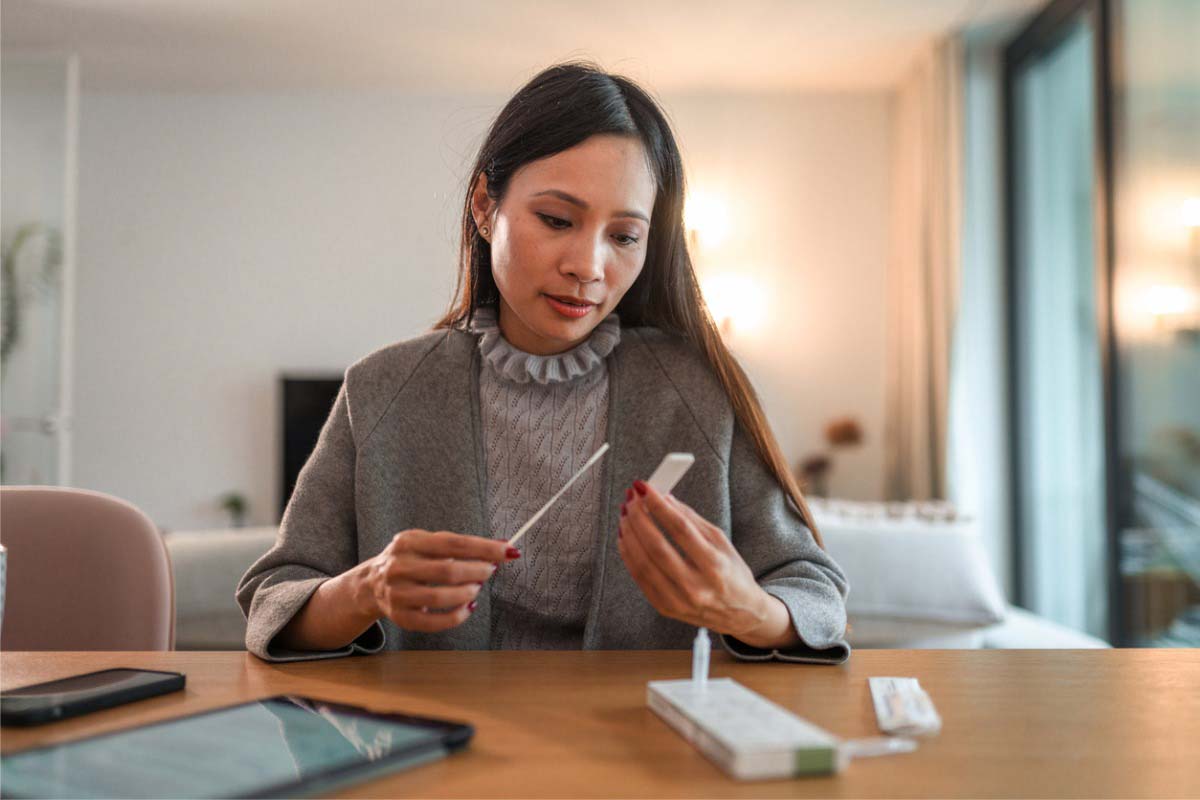
J Clin Psychiatry 2022;83(1):21br14179
To cite: Gasnier M, Choucha W, Radiguer F, et al. Acute objective severity of COVID-19 infection and psychiatric disorders 4 months after hospitalization for COVID-19. J Clin Psychiatry. 2022;83(1):21br14179.
To share: https://doi.org/10.4088/JCP.21br14179
© Copyright 2021 Physicians Postgraduate Press, Inc.
aService Hospitalo-Universitaire de Psychiatrie de Bicêtre, Mood Center Paris Saclay, Assistance Publique-Hôpitaux de Paris, Hôpitaux Universitaires Paris-Saclay, Hôpital de Bicêtre, Le Kremlin Bicêtre, France
bMOODS Team, INSERM 1018, CESP (Centre de Recherche en Epidémiologie et Santé des Populations), Faculté de Médecine Paris-Saclay, Université Paris-Saclay, Le Kremlin Bicêtre, France
cUniversité Paris-Saclay, AP-HP, Service de Réanimation Chirurgicale, Hôpital de Bicêtre, Le Kremlin-Bicêtre, France
dUniversité Paris-Saclay, AP-HP, Service de Médecine Interne et Immunologie Clinique, Hôpital de Bicêtre, Le Kremlin-Bicêtre, France
eUniversité Paris-Saclay, AP-HP, Service de Réanimation Pédiatrique et Médecine Néonatale, Hôpital de Bicêtre, Le Kremlin-Bicêtre, France
fUniversité Paris-Saclay, AP-HP, Service de Médecine Intensive-Réanimation, Hôpital de Bicêtre, Inserm UMR_S999, FHU SEPSIS, Le Kremlin-Bicêtre, France
gUniversité Paris-Saclay, AP-HP, Service de Pneumologie et Soins Intensifs Respiratoires, Hôpital de Bicêtre, Inserm UMR_S999, Le Kremlin-Bicêtre, France
hCentre de Recherche Clinique, Hôpitaux Universitaires Paris-Saclay, Assistance Publique-Hôpitaux de Paris, Hôpital de Bicêtre, Le Kremlin Bicêtre, France
iMembers of the COMEBAC study group are listed at the end of the brief report.
*Corresponding author: Emmanuelle Corruble, MD, PhD, Service Hospitalo-Universitaire de Psychiatrie de Bicêtre, Assistance Publique-Hôpitaux de Paris, Hôpitaux Universitaires Paris-Saclay, Hôpital de Bicêtre, Le Kremlin Bicêtre, F-94275, France ([email protected]).
Although psychiatric disorders are frequent after acute COVID-19, it is unclear whether they are predicted by acute COVID-19 severity. Indeed, a study based on electronic health records suggests a slight association between hospitalization or intensive care unit (ICU) admission during acute COVID-19 and incidence and prevalence of psychiatric disorders 6 months later.1
The objective of the present study was to assess whether a higher acute objective severity of COVID-19 infection predicted a higher prevalence of psychiatric disorders 4 months after hospitalization for COVID-19.
Methods
The COMEBAC (Consultation Multi-Expertise de Bicêtre Après COVID-19) cohort2 included 478 patients admitted to the Bicêtre Hospital (Le Kremlin-Bicêtre, France) from March 1 to May 29, 2020, for acute COVID-19. Four months after discharge from the hospital, the patients were contacted by a medical officer by telephone. Patients provided written informed consent, and the Ethics Committee of the French Intensive Care Society (CE20-56) approved the study. Study eligibility criteria have been previously reported.2 Among the 278 eligible patients, 177 (63.7%) engaged in a standardized psychiatric assessment in an outpatient setting. COVID-19 objective severity during hospitalization was assessed retrospectively using chart data. DSM-5 psychiatric disorders were assessed 4 months after discharge by qualified psychiatrists using the Mini-International Neuropsychiatric Interview (MINI).3 History of psychiatric disorders was extracted from medical records. Current psychiatric disorders, new-onset psychiatric disorders, and significant suicide risk were assessed during the psychiatric interview.
Statistical analyses were based on bivariate analyses (χ2 tests or Fisher tests for qualitative variables and Student t tests or Wilcoxon tests for quantitative variables) and compared acute COVID-19 objective severity in patients with and without psychiatric disorders. In case of significant results in bivariate analyses, multivariate logistic regressions adjusted for age, sex, and ICU admission were performed.
Results
The mean patient age was 57.5 years (SD = 13.2). Sixty-eight patients (38.4%) were women. During acute COVID-19, 97 patients (54.8%) were admitted to the ICU, 51 (28.8%) required invasive ventilation, 29 (16.4%) had acute delirium, and 40 (22.6%) received immunomodulatory treatments. The mean (SD) length of hospitalization was 22.0 (16.2) days, the maximum C-reactive protein (CRP) level was 147.9 (111.5) mg/L, and the maximum creatinine level was 127.6 (161.1) μmol/L.
Four months after acute COVID-19, 36 patients (20.3%) had at least 1 current psychiatric disorder, including 24 (13.6%) with a major depressive episode and 20 (11.3%) with an anxiety disorder. Twenty-nine (80.1%) of these 36 patients were diagnosed with a new-onset psychiatric disorder. Nine patients (5.1%) had a significant suicide risk.
Psychiatric disorders, new-onset psychiatric disorders, and significant suicide risk 4 months after acute COVID-19 were not associated with higher acute COVID-19 severity, as assessed with length of hospitalization, ICU admission, invasive ventilation, acute delirium, use of immunomodulatory treatments, maximum CRP levels, and creatinine levels. Based on a Cohen d > 0.50 for quantitative variables and w > 0.30 for qualitative variables, the identification of variables associated with new-onset psychiatric disorders had an a posteriori power of 75% for quantitative variables and 87% for qualitative variables.
Discussion
In this sample of survivors after hospitalization for acute COVID-19, we failed to show any association between acute COVID-19 objective severity and psychiatric disorders 4 months later. This result is in line with findings from 2 previous studies4,5 focusing on anxiety and depressive symptoms 4 and 6 weeks after hospitalization for COVID-19 in 200 and 81 patients, respectively. Similarly, a recent report5 in a sample of 58 patients found no association between CRP during acute COVID-19 and anxiety and depressive symptoms 3 months later. Accordingly, a study6 in 75 patients showed no association between mechanical ventilation during acute COVID-19 and depressive symptoms 5 months after discharge. However, the absence of association between acute COVID-19 objective severity and psychiatric disorders after discharge may be limited to hospitalized patients, since Taquet et al1 have shown differences between hospitalized and non-hospitalized patients. Moreover, the average age of COMEBAC patients was high, and neuropsychological aftereffects of COVID-19 might differ in a younger cohort and might have influenced the lack of association between COVID-19 severity and psychiatric disorders.
Nonetheless, our data may suggest that the mechanisms underpinning psychiatric disorders are not those provoking severe acute COVID-19, such as acute inflammation7 and coagulopathy.8 They also suggest that the relevance of individual susceptibility factors to psychological stress and the context of the pandemic may trigger the onset of psychiatric disorders.
Even if the sample size is moderate, the dropout rate is high (psychiatric characteristics being potentially different between patients who dropped out and those who did not), and psychiatric assessments before acute COVID-19 are lacking, our study not only provides a precise clinical, prospective, and biological characterization of patients during hospitalization for acute COVID-19 but also characterizes patients through the use of standardized psychiatric assessments by senior psychiatrists 4 months later.
Given their independence from objective severity of acute COVID-19 and the large number of survivors after hospitalization for COVID-19, psychiatric disorders after acute COVID-19 are a relevant public health problem in terms of incidence and treatment needs. Assessment of psychiatric disorders should be proposed to patients after hospitalization for COVID-19. Additionally, research is needed about the underpinning mechanisms and potential treatments of psychiatric disorders after COVID-19.
Published online: November 23, 2021.
COMEBAC Study Group: Luc Morin, MD, MSc1; Laurent Savale, MD, PhD2; Tài Pham, MD, PhD3; Romain Colle, MD, PhD4; Samy Figueiredo, MD, PhD5; Anatole Harrois, MD, PhD5; Matthieu Gasnier, MD4; Anne-Lise Lecoq, MD, PhD6; Olivier Meyrignac, MD, PhD7; Nicolas Noel, MD, PhD8; Elodie Baudry, MD9; Marie-France Bellin, MD7; Antoine Beurnier, MD10; Walid Choucha, MD4; Emmanuelle Corruble, MD, PhD4; Laurent Dortet, PharmD, PhD11; Isabelle Hardy-Leger, MA8; François Radiguer, MA5; Sabine Sportouch, MA3; Christiane Verny, MD9; Benjamin Wyplosz, MD, PhD12; Mohamad Zaidan, MD, PhD13; Laurent Becquemont, MD, PhD6; David Montani, MD, PhD2; and Xavier Monnet, MD, PhD.3 Affiliations of the COMEBAC Study Group: 1Université Paris-Saclay, AP-HP, Service de Réanimation Pédiatrique et Médecine Néonatale, Hôpital de Bicêtre, DMU 3 Santé de l’Enfant et de l’Adolescent, Le Kremlin-Bicêtre, France; 2Université Paris-Saclay, AP-HP, Service de Pneumologie et Soins Intensifs Respiratoires, Hôpital de Bicêtre, DMU 5 Thorinno, Inserm UMR_S999, Le Kremlin-Bicêtre, France; 3Université Paris-Saclay, AP-HP, Service de Médecine Intensive-Réanimation, Hôpital de Bicêtre, DMU 4 CORREVE Maladies du Cœur et des Vaisseaux, Inserm UMR_S999, Le Kremlin-Bicêtre, France; 4Université Paris-Saclay, AP-HP, Service de Psychiatrie, Hôpital de Bicêtre, DMU 11, équipe MOODS, INSERM U1178, CESP (Centre de Recherche en Epidémiologie et Santé des Populations), Le Kremlin-Bicêtre, France; 5Université Paris-Saclay, AP-HP, Service de Réanimation Chirurgicale, Hôpital de Bicêtre, DMU 12 Anesthésie, Réanimation, Douleur, Le Kremlin-Bicêtre, France; 6Université Paris-Saclay, AP-HP, Centre de Recherche Clinique Paris-Saclay, DMU 13 Santé Publique, Information Médicale, Appui à la Recherche Clinique, INSERM U1018, CESP (Centre de Recherche en Epidémiologie et Santé des Populations); 7Université Paris-Saclay, AP-HP, Service de Radiologie Diagnostique et Interventionnelle, Hôpital de Bicêtre, DMU 14 Smart Imaging, BioMaps, Le Kremlin-Bicêtre, France; 8Université Paris-Saclay, AP-HP, Service de Médecine Interne et Immunologie Clinique, Hôpital de Bicêtre, DMU 7 Endocrinologie-Immunités-Inflammations-Cancer-Urgences, Le Kremlin-Bicêtre, France; 9Université Paris-Saclay, AP-HP, Service de Gériatrie Aiguë, Hôpital de Bicêtre, DMU 1 Médecine Territoire Gériatrie, Le Kremlin-Bicêtre, France; 10Université Paris-Saclay, AP-HP, Service de Physiologie et d’Explorations Fonctionnelles Respiratoires, Hôpital de Bicêtre, DMU 5 Thorinno, Inserm UMR_S999, Le Kremlin-Bicêtre, France; 11Université Paris-Saclay, AP-HP, Service de Microbiologie, Hôpital de Bicêtre, DMU 15 Biologie-Génétique-PUI, INSERM 1193, Le Kremlin-Bicêtre, France; 12Université Paris-Saclay, AP-HP, Service des Maladies Infectieuses et Tropicales, Hôpital de Bicêtre, DMU 7 Endocrinologie-Immunités-Inflammations-Cancer-Urgences, INSERM U1018, CESP (Centre de Recherche en Epidémiologie et Santé des Populations), Le Kremlin-Bicêtre, France; 13Université Paris-Saclay, AP-HP, Service de Néphrologie Transplantation, Hôpital de Bicêtre, DMU 4 CORREVE Maladies du Cœur et des Vaisseaux, Le Kremlin-Bicêtre, France.
Potential conflicts of interest: Dr Noel reported personal fees from MSD and Biogen outside the submitted work. Dr Montani reported personal fees from Actelion, GSK, Pfizer, MSD, Chiesi, Boehringer, and Incyte Biosciences France; grants from Bayer and MSD; and nonfinancial support from Acceleron outside the submitted work. Dr Monnet reported personal fees from Getinge Pulsion Medical and Baxter outside the submitted work. Dr Becquemont reported grants from Sanofi Genzyme for a presentation concerning Gaucher disease and pharmacogenetics and drug interactions with Eliglustat outside the submitted work. The other authors reported no disclosures.
Funding/support: This study was funded by the Assistance Publique-Hôpitaux de Paris (APHP).
Role of the sponsor: The funder was not involved in the design and conduct of the study, collection, management, analysis, and interpretation of the data, preparation, review, or approval of the manuscript, nor the decision to submit the manuscript for publication.
Acknowledgments: The authors thank the patients who participated in this cohort, as well as the doctors, psychologists, nurses, care helpers, biologists, pharmacists, other allied health professionals, and administrators of Bicêtre Hospital and the APHP. They thank Kenneth Chappell, MSc, for language editing. Mr Chappell received no financial compensation for this work.
References (8)

- Taquet M, Geddes JR, Husain M, et al. Six-month neurological and psychiatric outcomes in 236,379 survivors of COVID-19: a retrospective cohort study using electronic health records. Lancet Psychiatry. 2021;8(5):416–427. PubMed CrossRef
- Morin L, Savale L, Pham T, et al; Writing Committee for the COMEBAC Study Group. Four-month clinical status of a cohort of patients after hospitalization for COVID-19. JAMA. 2021;325(15):1525–1534. PubMed CrossRef
- Mini-International Neuropsychiatric Interview (MINI) 7.0.2. Harm Research. Published November 4, 2017. Accessed September 3, 2021. https://harmresearch.org/index.php/product/mini-international-neuropsychiatric-interview-mini-7-0-2-4/
- Hall J, Myall K, Lam JL, et al. Identifying patients at risk of post-discharge complications related to COVID-19 infection. Thorax. 2021;76(4):408–411. PubMed CrossRef
- Raman B, Cassar MP, Tunnicliffe EM, et al. Medium-term effects of SARS-CoV-2 infection on multiple vital organs, exercise capacity, cognition, quality of life and mental health, post-hospital discharge. EClinicalMedicine. 2021;31:100683. PubMed CrossRef
- Schandl A, Hedman A, Lyngå P, et al. Long-term consequences in critically ill COVID-19 patients: a prospective cohort study. Acta Anaesthesiol Scand. 2021;65(9):1285–1292. PubMed CrossRef
- Hadjadj J, Yatim N, Barnabei L, et al. Impaired type I interferon activity and inflammatory responses in severe COVID-19 patients. Science. 2020;369(6504):718–724. PubMed CrossRef
- Leentjens J, van Haaps TF, Wessels PF, et al. COVID-19-associated coagulopathy and antithrombotic agents—lessons after 1 year. Lancet Haematol. 2021;8(7):e524–e533. PubMed CrossRef
This PDF is free for all visitors!





